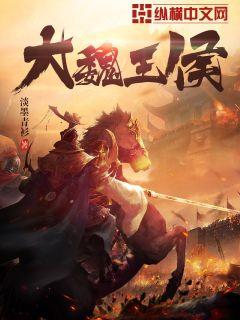
Certainly! Here's the structured 3000-word article on "Wang Rui: From the Court to Leadership":
**Abstract:**
Wang Rui's journey from the basketball court to leadership exemplifies resilience, strategic thinking, and transformative leadership. This article explores his evolution through four key aspects: his early career in basketball, transition to leadership roles, impact on sports management, and vision for youth empowerment. Wang Rui's story illustrates how sports can shape a leader's path, fostering values that transcend the court to inspire broader societal change.
**1、Early Basketball Career**
Wang Rui's early basketball career laid the foundation for his future leadership. Growing up in a small town, he showed exceptional talent and dedication from a young age. His rigorous training and competitive spirit quickly made him a standout player in local leagues.
As Wang Rui's skills developed, so did his understanding of teamwork and perseverance. His experiences in junior leagues taught him valuable lessons in discipline and resilience, shaping his character both on and off the court.
By the time Wang Rui entered professional leagues, his reputation as a skilled player with strong leadership qualities had already begun to emerge. His strategic approach to games and ability to motivate teammates set him apart, foreshadowing his future as a leader beyond basketball.
**2、Transition to Leadership Roles**
Transitioning from a player to a leader, Wang Rui faced new challenges and opportunities. Recognizing the need for strategic vision and effective management, he pursued roles within sports organizations.
Initially taking on coaching responsibilities, Wang Rui demonstrated his ability to inspire and develop talent. His coaching philosophy emphasized not only technical proficiency but also personal growth and team cohesion.
Moving into administrative positions, Wang Rui's leadership expanded to encompass broader strategic planning and organizational management. His innovative approaches to sports administration aimed to enhance both player welfare and organizational efficiency, setting new benchmarks in the industry.
Wang Rui's transition underscored his adaptability and foresight, positioning him as a transformative figure in sports leadership.
**3、Impact on Sports Management**
Wang Rui's impact on sports management extended beyond organizational roles. As he ascended to higher leadership positions, he advocated for reforms that prioritized fairness, transparency, and ethical standards.
Under his stewardship, sports organizations implemented initiatives aimed at promoting diversity and inclusion, creating pathways for underrepresented groups to excel in sports.
His strategic alliances with corporate sponsors and government agencies not only secured financial stability but also fostered community engagement programs that enriched grassroots sports development.
Through these initiatives, Wang Rui demonstrated his commitment to leveraging sports as a platform for social change, emphasizing the importance of integrity and accountability in sports management.
**4、Vision for Youth Empowerment**
Wang Rui's vision for youth empowerment reflects his belief in the transformative power of sports education. Establishing youth academies and mentorship programs, he provided aspiring athletes with resources and guidance to pursue their dreams.
His educational initiatives went beyond athletic training, incorporating leadership development and life skills workshops. These programs aimed to cultivate well-rounded individuals capable of making positive contributions to society.
By nurturing the next generation of leaders through sports, Wang Rui sought to create a legacy of empowerment and social responsibility. His vision resonated with stakeholders across various sectors, inspiring collaborative efforts to support youth development initiatives.
**Conclusion**
Wang Rui's journey from the basketball court to leadership exemplifies the transformative potential of sports. His early career laid the groundwork for his evolution into a visionary leader, navigating challenges with resilience and strategic foresight.
Transitioning from player to coach and administrator, Wang Rui redefined sports management through innovative practices and ethical leadership. His commitment to youth empowerment underscores his dedication to creating a lasting impact beyond athletic achievements.
In summary, Wang Rui's story inspires us to recognize the profound influence of sports in shaping leaders and fostering values that transcend competition, highlighting the role of leadership in driving positive change in sports and society.
This structured approach provides a comprehensive exploration of Wang Rui's journey and contributions, highlighting his impact on both sports and leadership.
文章摘要的内容
拉齐奥足球俱乐部作为意大利足球历史上的重要一环,其球员风采不仅展示了优秀的足球技艺和竞技精神,更深刻影响了球队文化和粉丝群体。本文将从球队的历史传承、传奇球员、战术风格以及球员对俱乐部的影响四个方面详细探讨拉齐奥足球俱乐部历年球员的光辉历程,展现他们在绿茵场上的璀璨风采。
1、历史传承
拉齐奥足球俱乐部成立于1900年,其历史传承丰厚,深深植根于罗马的足球文化之中。从早期的荣耀时代到现代的国际舞台,俱乐部在历史长河中留下了无数辉煌的篇章。
拉齐奥在意大利足球历史上有着独特的地位,作为罗马的主要足球代表之一,其球员不仅在国内联赛中频频斩获荣誉,更在欧洲赛场上展现出了无限的潜力和实力。
俱乐部的历史传承不仅体现在球场上的辉煌战绩,还体现在其打造和培养了一代又一代的优秀球员,这些球员不仅代表着俱乐部的荣耀,更是罗马足球文化的重要组成部分。
2、传奇球员
拉齐奥足球俱乐部历年来涌现出众多传奇球员,他们以其出色的技术和不懈的努力成为球队的灵魂人物。
其中,像迭戈·马拉多纳这样的足球天才曾经为拉齐奥效力,他的加盟不仅提升了球队的竞技水平,也为球迷带来了无尽的激情。
除了国际名将,拉齐奥还培养了许多本土球员,他们通过自己的努力和才华为俱乐部赢得了荣誉,例如马尔凯西尼、内斯塔等。
这些传奇球员不仅令人难忘的是他们在球场上的表现,更是他们对俱乐部精神的忠诚和奉献,他们的名字将永远铭刻在拉齐奥足球俱乐部的历史上。
3、战术风格
拉齐奥足球俱乐部的战术风格一直以来以进攻力量和速度闻名,这不仅反映在他们的比赛风格上,也体现在球员们的技术和战术应用中。
俱乐部在不同时期采用过多种战术体系,其中以强大的前场压迫和快速反击见长,这种风格不仅使得球队在国内赛事中屡获佳绩,在国际赛场上也曾有过耀眼的表现。
拉齐奥的战术风格不断演变和创新,每一位重要的球员都为其风格和战术应用做出了重要贡献,塑造了俱乐部独特的比赛风格。
4、球员对俱乐部的影响
拉齐奥足球俱乐部的每一位球员都对俱乐部有着深远的影响,无论是在球场上的表现还是在俱乐部文化的传承上。
许多球员成为了球队的象征性人物,他们通过自己的力量和影响力,将俱乐部的声誉和影响力传播到世界各地。
他们不仅仅是俱乐部的一部分,更是球迷心中的英雄,他们的付出和奉献永远激励着新一代的球员和支持者。
每一位球员都在不同的方式和层面上为俱乐部带来了独特的贡献,他们的影响力超越了赛场,成为了俱乐部文化的不可或缺的一部分。
总结:
拉齐奥足球俱乐部历年来通过其悠久的历史传承、众多传奇球员、独特的战术风格以及球员对俱乐部的深远影响,展现了其在意大利足球及国际足坛上的重要地位。每一位球员都在不同层面上贡献了自己的力量,为俱乐部增添了无数的荣耀时刻。
拉齐奥足球俱乐部不仅仅是一支足球队,更是罗马足球文化的重要象征,其球员们的光辉历程将继续激励着全球球迷和未来的足球人才。
文章摘要的内容
瑞典政坛的权力斗争与政治演变展示了一个典型北欧社会如何在民主制度下持续演进。从中世纪封建时代到现代的福利国家模式,瑞典政治经历了君主制、议会制和社会民主主义的转变,每一阶段都显现出政治权力争夺与制度变革的特点。本文将从历史背景、政治制度、党派竞争以及现代议题四个方面深入探讨瑞典政坛的演变过程。
1、历史背景
瑞典政坛的演变根植于封建时代的王权强盛,随后在16世纪宗教改革和君主制度下形成了早期的议会。17至19世纪的绝对君主制度奠定了贵族与国王间长期权力对抗的基础。
19世纪末的议会制度逐步确立,政党系统开始形成,工人运动和社会主义思潮对政治格局产生深远影响。
20世纪初的女性参政权争取、两次世界大战后的福利国家建设,都对瑞典政坛权力斗争与政治文化产生了深刻影响。
2、政治制度
瑞典的议会制度以其高度代表性和联合政治的特点而闻名,议会选举和政府形成的程序严谨而民主。
社会民主党、中间党和保守党的轮番执政,展示了多党制度下的权力交替与政策稳定。
议会的委员会系统和各级地方政府的自治权保障了政治决策的广泛参与和地方政权的稳定性。
3、党派竞争
社会民主党作为瑞典政治的主导力量,其与中间党、保守党等政治力量的博弈和合作关系,决定了政策方向和国家发展的大框架。
小党派的出现和影响力的增强,如绿党、左翼党等,使政治格局更趋向多元化和平衡化。
党派之间的竞选策略、意识形态的博弈以及公共支持率的波动,构成了瑞典政坛动态变化的核心。
4、现代议题
环境保护、移民政策、欧盟关系等现代议题,如何在瑞典政坛引发政治辩论和政策调整,反映了国家与国际社会的互动和影响。
数字化和科技创新对政治治理的挑战,以及新兴社会运动对政治参与和民主化的影响,都是当前政治演变的重要组成部分。
瑞典政坛在全球化和国际化背景下的角色定位和政策调整,影响着北欧地区和欧洲大陆的整体政治格局。
总结:
瑞典政坛的权力斗争与政治演变展现了一个民主国家如何在多党制度下实现政治稳定与社会进步。从历史的王权与贵族斗争,到现代的社会民主主义和环境政策,瑞典政治制度不断演变,但保持着其高效的议会制度和强大的福利国家特征。
瑞典政坛的多元化党派竞争和民主程序,使其成为欧洲政治中的重要力量,不仅影响国内政策,也在国际舞台上发挥着积极作用。